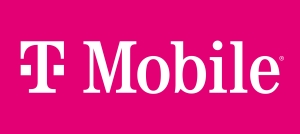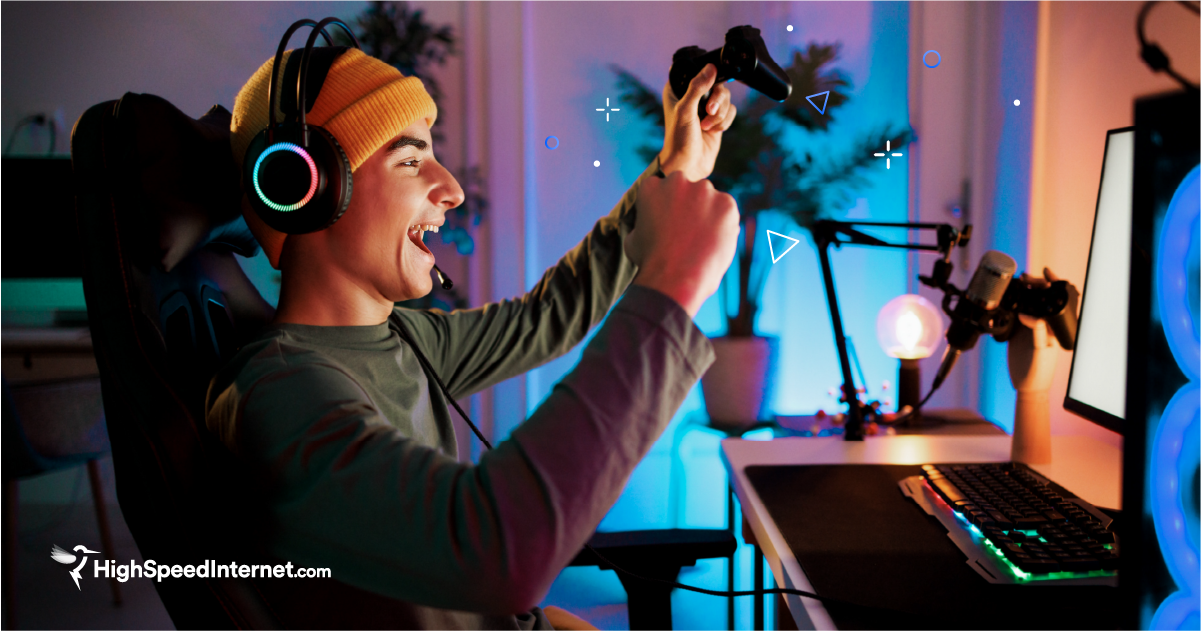How Much Data a Hotspot Uses
Streaming and video calls can use 2–10GB per hour
Jan 21, 2026 | Share
Technology
Mobile hotspots are the energy bars of internet service, giving you quick and easy Wi-Fi while on the go. To figure out how much you need for various activities, calculate the amount of data each task requires and then add a buffer to make up for things like background data.
Mobile data burns through about 30MB per hour, per tethered device, for streaming audio, browsing the web, gaming, or checking email. However, you’ll use up to 2GB per hour if you’re streaming video or making video calls in HD. Multiply that by up to five times to account for desktop version of sites and adaptive bitrate streaming, and you could be looking at data usage of 10GB per hour for each connected device.
Most hotspot data plans come with far less data than what you get on a home internet plan, so it’s important to keep track of your personal hotspot’s mobile data usage. Here’s a quick guide to how much data hotspots use and how much you should get depending on your hotspot usage.
How much hotspot data do you need?
You need at least 2GB of data per month for a standalone hotspot device or smartphone hotspot. That’s enough to cover a day or two of intermittent video streaming, online gaming, and web browsing.
You likely need at least 10GB of hotspot data per month, though, if you plan to use a hotspot regularly. You also need more data if you plan to use your personal hotspot for multiple users and devices.
| Internet activity | Minimum recommended data per hour |
|---|---|
| Streaming video or making video calls in HD | 2GB |
| Streaming video in SD | 500MB |
| Making video calls on Zoom (SD resolution) | 340MB |
| Online gaming | 200MB |
| Web browsing and checking email | 200MB |
| Streaming music or podcasts | 60MB |
Data from the Armstrong data calculator.
How much hotspot data can you get?
Hotspot allowances with popular mobile phone plans
If you’re using your mobile phone as a hotspot, you can get up to 250GB of high-speed hotspot data per month if you go with T-Mobile. Verizon offers mobile phone plans with up to 200GB of high-speed hotspot data, and AT&T offers plans with up to 60GB of hotspot data with the option to pay more for monthly add-ons if you run out. Visible technically offers unlimited hotspot data on all its mobile phone plans, but you’ll be limited to 5–15Mbps speeds on just one tethered device at a time.
Here’s a look at ho mobile phone hotspot plans compare.
| Plan | Price | High-speed hotspot data | Shop now |
|---|---|---|---|
| T-MobileExperience More | $85/mo. 1 line w/ AutoPay* | 60GB | View Plans for T-Mobile |
| T-Mobile Experience Beyond | $100/mo. 1 line w/ AutoPay* | 250GB | View Plans for T-Mobile |
| AT&T Unlimited Starter SL | $65.99/mo. per line† | 5GB | |
| AT&T Unlimited Extra EL | $75.99/mo. per line† | 30GB | |
| AT&T Unlimited Premium PL | $85.99/mo.per line† | 60GB | |
| Verizon Unlimited Plus | $60/mo. w/ Auto Pay‡ | 30GB | |
| VerizonUnlimited Ultimate | $90.00/mo.‡ | 200GB | |
| Visible | $25/mo.sup>§per line§ | Unlimited at 5Mbps | View Plans for Visible |
| Visible+ | $35/mo.per line§ | Unlimited at 10Mbps | View Plans for Visible |
| Visible+ Pro | $45/mo.§ | Unlimited at 15Mbps | View Plans for Visible |
Data as of 01/21/2026. Availability and speed may vary by location, and prices are subject to change. See disclaimers.
Hotspot allowances with popular mobile phone plans
You can also get data-only plans for standalone hotspot devices. You won’t get as much data, but you’ll pay less. Plus, you may be eligible for savings up to $20 per month if you bundle with a premium mobile phone plan from the carrier.
Standalone hotspot devices also let you connect more devices at once, save battery life on your smartphone, and may offer faster speeds because of their dedicated hardware and antennas.
Here’s a look at how hotspot device plans compare.
| Provider | Price | High-speed data | Shop Now |
|---|---|---|---|

| $10/mo. | 2GB | View Plans for T-Mobile |

| $20/mo. | 5GB | View Plans for T-Mobile |

| $30/mo. | 10GB | View Plans for T-Mobile |
| $240/yr. | 20GB | ||
| $35/mo. | 15GB | ||
| $55/mo. | 50GB | ||
| $90/mo. | 100GB | ||
|
| $40/mo. $10/mo with Multiline discount | 5GB | |
|
| $60/mo. $30/mo with Multiline discount | 25GB | |
|
| $80/mo. $50/mo with Multiline discount | 100GB | |
|
| $100/mo. $70/mo with Multiline discount | 150GB |
Data as of 01/21/2026. Availability and speed may vary by location, and prices are subject to change.
How much hotspot data do you use? A task-by-task breakdown
To give you a better idea of how much data a mobile hotspot uses, we broke things down according to specific tasks.
Before we jump into the deets, here are a few important things to keep in mind when you’re using a personal hotspot.
- You use more data when you connect more devices.
- Streaming video uses up a lot of data.
- Downloading files can add up to big data usage.
Browsing and streaming music only uses a tiny amount of data
You don’t use very much mobile hotspot data when you send emails, read the news, scroll social media, shop online, or stream music and podcasts. Even online gaming has a relatively modest impact on your hotspot data.
If this constitutes the bulk of what you do on a hotspot, then you don’t need to worry about investing in a pricey hotspot data plan. You also don’t need to count your gigabytes as closely for fear of exceeding your data limit.
Hotspot data consumption by activity
| Activity | How much data it uses | How much time it takes to use 1GB |
|---|---|---|
| Online gaming | 400MB per hour | 2.5 hours |
| Web browsing | 360MB per hour | 2.5–3 hours |
| Scrolling/posting on social media | 1800MB per hour | 5–6 hours |
| Streaming audio | 120MB per hour | 9.5 hours |
| Sending/receiving emails | 80MB per 100 emails | 1.200 emails |
Streaming video takes up the most hotspot data
Try your best to avoid streaming video in HD when you’re on a Wi-Fi hotspot—you’re going to zap your data cap in a jiffy when you’re using up to 10GB per hour. And don’t even think about streaming a movie in 4K; save that for your home internet connection. Instead, when you sign on using a hotspot, change the video settings on YouTube and Netflix so that videos automatically stream in SD.
| Activity | How much data it uses | How much time it takes to use 1GB |
|---|---|---|
| Streaming video in SD | 1GB per hour | 1 hours |
| Streaming video in HD | 4GB per hour | 15 minutes |
| Streaming video in 4K | 10GB per hour | 6 minutes |
Every file you download counts toward your data
The size of a file you download roughly equals the amount of cellular data you use to download it. You’re fine downloading a PDF from a client, but stay away from the big stuff like video files or hard-drive backups. Save those downloads for when you’re back home on your regular Wi-Fi.
| Download | How much data it uses |
|---|---|
| A six-page PDF | 5.9MB |
| An HD movie | Approx. 4GB |
| A video game or game update | Approx. 20-60GB |
Calculations from the Armstrong data calculator.
Why your hotspot might burn through data quickly
If you’re not getting as much out of your hotspot data as you expect, there may be a few reasons why. First, account for higher bitrates. Since speeds have improved across the board, streaming services have increased the “depth” of their video. This makes it look sharper and uses more data, even if the resolution (1080p) stays the same.
Next, account for three ways data can disappear in the background:
- Auto-play video
- Operating system updates
- Cloud syncing
Pro tip: Adjust network settings for your hotspot
You may be able to stop some of this data from disappearing by setting your hotspot network up correctly. Look for the “Metered Connection” options in the Advanced Network Settings on your laptop PC. On a Mac, you’ll get the same result by toggling on the “low data mode” setting in your hotspot’s Network Settings.
Learn more about mobile hotspots
Browse our resource library to learn more about mobile hotspots.
FAQ
How much data does a hotspot use?
Can you get unlimited data on a hotspot?
Disclaimers
*T-Mobile
for 1 phone line + taxes and fees. AutoPay discount using an eligible payment method applied. 5 year price guarantee.
†AT&T
5G coverage not available everywhere. Requires compatible device/service. Other terms and restr’s apply. Data charges may apply.
‡Verizon
§Visible
Amazon.com
Product prices and availability are accurate as of the date/time indicated and are subject to change. Any price and availability information displayed on Amazon.com at the time of purchase will apply to the purchase of this product. HighSpeedInternet.com utilizes paid Amazon links.
CERTAIN CONTENT THAT APPEARS ON THIS SITE COMES FROM AMAZON. THIS CONTENT IS PROVIDED ‘AS IS’ AND IS SUBJECT TO CHANGE OR REMOVAL AT ANY TIME.
Author - Chili Palmer
Chili Palmer covers home tech services, with a special focus on understanding what families need and how they can stay connected on a budget. She handles internet access and affordability, breaking news, mobile services, and consumer trends. Chili’s work as a writer, reporter, and editor has appeared in publications including Telecompetitor, Utah Business, Idaho Business Review, Benton Institute for Broadband & Society, and Switchful.com.




